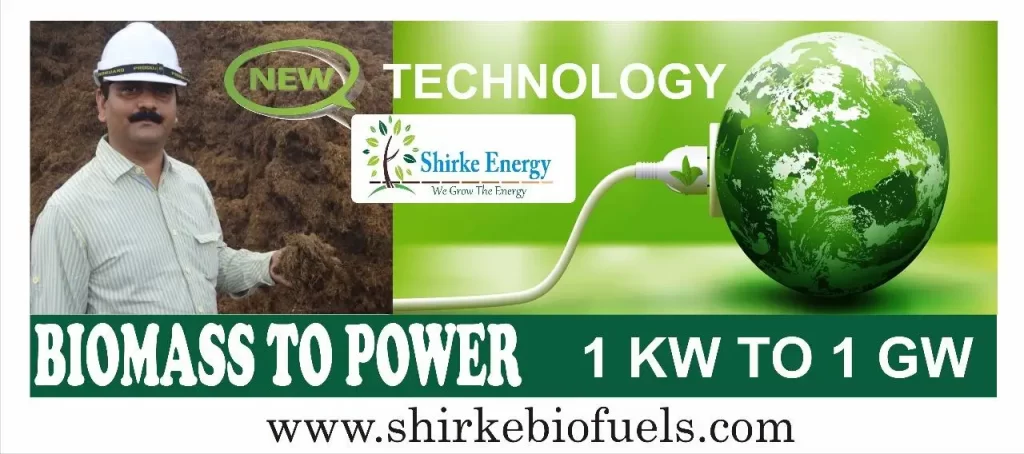The process of using waste, which can be found in many forms, and generating electricity from it is known as waste to power generation. It includes waste available in urban and rural Areas. Waste poses a severe threat to the natural world and the environment. The systematic disposal of waste is essential. Waste to power generation is also a commercially viable option. Low air pollution is the prime objective during waste to power generation.
Broadly various waste termed as,
- Municipal Solid Waste
- Agriculture Waste
- Forest Residue

Biomass to Electricity Generation
We develop Biomass to Electricity generation plants with the use of agriculture crop residues. The crop residues are like cotton straw, rice straw husk, wheat straw, corncobs, grass, dry waste, bagasse, forest waste, or dry waste. The plant delivers industrial grade power supplies.
The biomass to electricity generation project generates electricity at a low cost using available resources. Additionally, it provides sustainable income to farmers and reduces carbon footprints.
Small Scale Biomass Power Plant
Shirke Energy launched an innovative small scale biomass power plant of capacity 10 KW. It consumes 10Kg/hr biomass whereas it produces 10KWh or 12Kvh Electricity as output. The electricity is useful for industrial scale.
For bookings, please send your enquiry and submit the form.
Waste to Power Generation Technology
In an era where sustainability is paramount, waste to power generation emerges as a vital solution. This process converts various types of waste, including municipal solid waste, industrial waste, and agricultural residues, into renewable energy. By harnessing the energy stored in waste, we can reduce landfill use and lower greenhouse gas emissions
Advantages of our Technology
Modern Compared to the trash incinerators that were frequently utilized until a few decades ago, modern waste to energy plants are significantly different. The majority of waste to energy facilities burn hazardous waste, industrial waste, or municipal solid waste.
Recycling and waste to energy plants can coexist in a contemporary, efficiently operated facility that classifies materials before burning them. The only things that are burned are non-hazardous and neither intentionally nor economically recyclable.
- Additional income for farmers
- Employment generation in the rural region
- Use of waste for energy generation
- Possibility of power integration into the grid or use of power for local consumption
- Possible reduction of centralised power distribution burden, very useful for remote locations
Benefits of Waste to Power Generation
- Global Adoption of Waste to Power: Waste to power generation is increasingly adopted worldwide as a sustainable solution to manage waste and produce renewable energy.
- Environmental Benefits: Converting waste into power helps reduce landfill waste, lower greenhouse gas emissions, and decrease environmental pollution.
- Diverse Technologies in Use: A variety of technologies, including incineration, gasification, and anaerobic digestion, are used to convert waste into electricity and heat.
- Economic Advantages: Waste to power plants contribute to local economies by creating jobs, generating revenue, and reducing reliance on fossil fuels.
- Energy Security and Sustainability: Waste to power provides a reliable, renewable source of energy, contributing to energy security and reducing dependence on non-renewable resources.
- Global Trends and Investments: As countries around the world look for innovative solutions to climate change, the waste to energy sector is attracting significant investments.
The Future of Waste to Power Generation
As technology advances, the efficiency of waste to power systems continues to improve. Investments in research and development are crucial for optimizing these processes and integrating them into national energy strategies.
Embracing waste to power generation not only addresses waste management challenges but also paves the way for a greener, more sustainable future. For communities and businesses looking to reduce their carbon footprint, this innovative solution offers a pathway to cleaner energy and responsible waste management.
By focusing on waste to power generation, we can create a circular economy that benefits both the planet and its inhabitants.